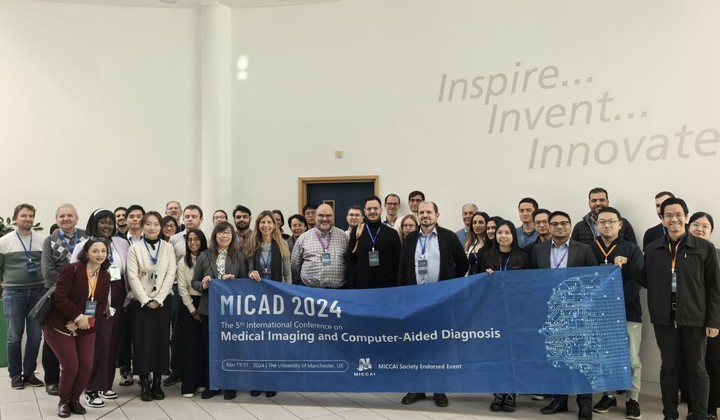David participated at MICAD 2024 in Manchester، UK

At MICAD 2024 in Manchester, UK, David presented our research, Deep Learning for Lymph Node Metastasis Detection in Pancreatic Ductal Adenocarcinoma. This study introduces an innovative two-stage deep learning framework to improve the detection of lymph node metastases (LNM) in PDAC. Utilizing 3D CT scans and integrating imaging with clinical features, our model achieves enhanced performance without relying on lymph node segmentation.
Our study underscores the significance of combining imaging data with non-imaging clinical attributes, such as tumor size, anatomical location, and CA-19-9 tumor marker levels. The model demonstrated a 35.32% relative improvement in balanced accuracy, highlighting the impact of holistic data integration in LNM detection. Notably, the inclusion of straightforward automated segmentation priors further optimized performance, marking a pivotal step forward in preoperative diagnostics for PDAC.
Engaging with the MICAD community gave us a valuable platform to showcase these advancements, fostering discussions on multi-institutional collaboration and addressing challenges like domain shifts and data heterogeneity. The feedback and interest from peers emphasized the relevance of our findings, opening avenues for potential collaborations to refine and expand this work.